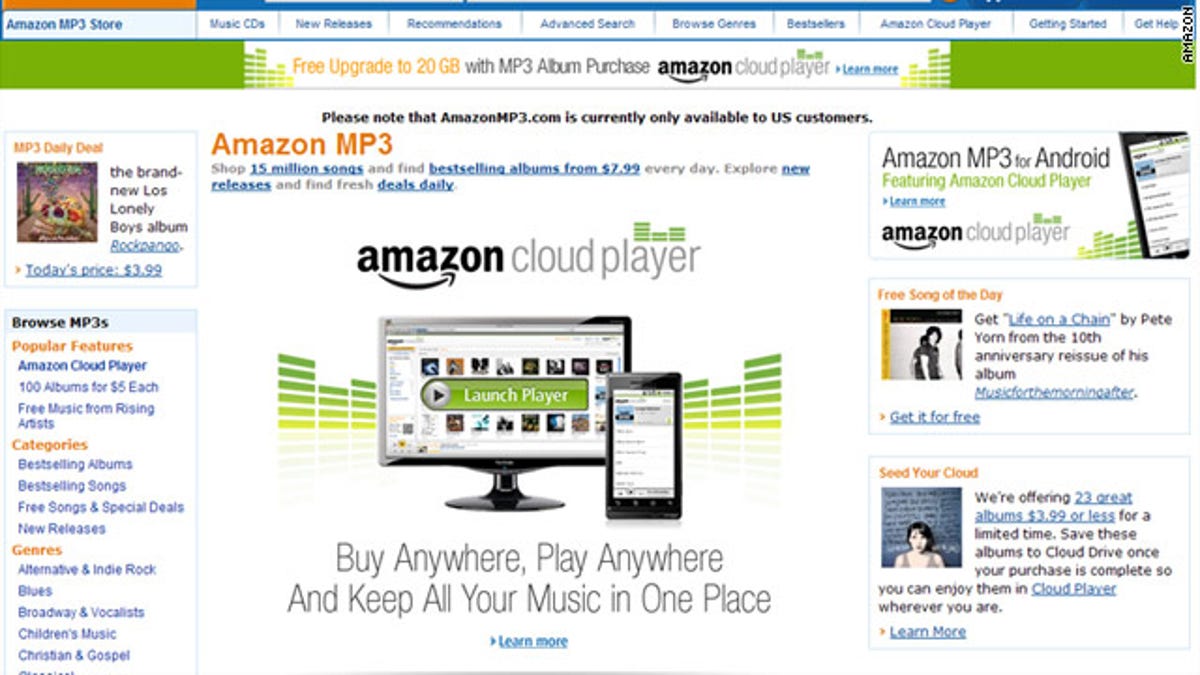
Amazon recently unveiled a new 'cloud' streaming and storage service, powered by the company's EC2 web hosting service. (Amazon.com)
Amazon's plan to launch a cloud storage service for digital music and video collections might be pie in the sky, the New York Post reported Wednesday, citing critics.
The plan, which was unveiled Tuesday and already drawing fire from some of its content partners, gave Amazon a head start on rivals Google and Apple.
The two Silicon Valley, Calif., digital giants were not expected to detail their own digital media storage services until their separate developer conferences. Both Apple and Google were also still seeking music licenses.
mazon, however, was streaking ahead, irking the main music labels.
Music companies and Hollywood studios ripped CEO Jeff Bezos' plan for Amazon's cloud-based streaming service. "It sounds like legalized murder to me," said one senior music veteran, adding that legal action was being considered.
Cloud Drive, coupled with a Cloud Player, would allow consumers to transfer music and videos from Android-enabled mobile devices to their personal computers and Macs, for instance. However, there was no ability to move content from Apple iPads or iPhones.
But movement from one device to the next is not the issue. It is all about who is doing the uploading to the cloud. Amazon said its service acts as an external hard drive, while Apple and Google would automatically scan devices to transport content to the cloud.
The music industry's objections include the possibility that users might store illegal or pirated material and that cloud storage offers easy access to collections of friends.
Amazon's music director, Craig Pape, told music news website Billboard on Tuesday that "we don't believe we need licenses to store the customers' files. We look at it the same way as if someone bought an external hard drive and copies files on there for backup."
Amazon has launched new products at a frenzied pace. In late February, Bezos gave customers instant streaming access to 5,000 video titles for free.
One source suggested that the service, called Amazon Prime, met with little interest from Hollywood's studios because it was only offering a revenue share and could not compete with Netflix, which was writing big checks for Tinseltown content.








































